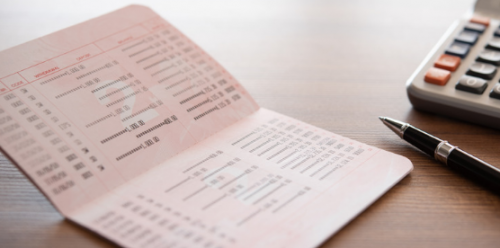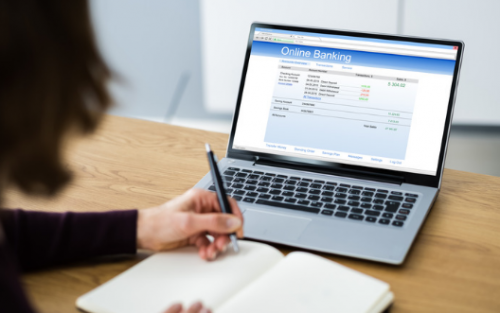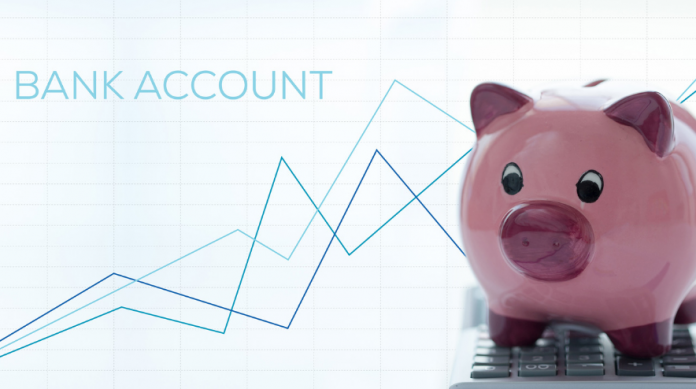Table of Contents
Planning carefully and setting aside as much cash as possible for future necessities and passions is the most excellent method to ensure you accumulate wealth and stay out of debt.
Your financial habits, though, might significantly impact how you manage your funds.
While some financial gurus advise creating numerous accounts for different savings goals, others suggest setting up a straightforward savings account linked to your checking account.
Undoubtedly, using one bank rather than many banks is more effective, easy, and streamlined.
However, is having all your money in one bank the most effective way to handle it? In this article, we explore this topic that concerns many Canadians.
How Many Accounts In My Bank Should I Have?

There is no right or incorrect response when it comes to bank accounts. However, it begins with identifying your objecrangingt range from what you’re ng for to what you want to invest in.
Using internet templates or spreadsheets, this may be described. There is no restriction on the number of accounts you may have. Everything is dependent on the objectives and budget that each person has.
In addition, take into account your financial objectives.
Consider creating a savings account for each of your short-term savings objectives, such as setting up an emergency fund and saving for a down payment on a home, to make it simpler to monitor your progress and to be able not to use services like e-transfer payday loans Canada 24/7 even in emergencies.
Benefits of Maintaining Multiple Bank Accounts

You Have Several Savings Objectives
The most significant benefit of opening several accounts is the ability to keep track of the precise amount you have put aside for each distinct savings objective.
You might create three accounts to assess how close you are to achieving your objectives.
For instance, if you want to save three months’ worth of salary in an emergency fund, save money for a down payment on a home, and pay for your summer vacation.
Utilize the Benefits, Promotions, and Discounts
Occasionally, banks may give incentives to entice new consumers to join up. If you look around, you could discover reduced costs for establishing a new chequing account and configuring a bill payment or pre-authorized transactions, a special interest rate on deposits made into a new e-savings account, or a cash incentive for creating a new TFSA.
Increasing Savings For Many Objectives
Having several savings accounts and credit cards might be advantageous if you save for various objectives.
This “bucket” strategy may include having one account set aside for vacation savings, another for saving for a new vehicle or new property, and even a third account reserved exclusively for emergency cash.
Tracking your progress toward numerous objectives might be more straightforward using several savings accounts. Creating savings buckets can be done without user accounts with many institutions.
Higher Rates of Interest


When needed, in-person support is a benefit of holding a savings account with a physical bank. Still, online-only banks may provide better interest rates than more established institutions can match.
Keeping your emergency money at your current bank while saving for that significant buy with a high-interest, online-only savings account that will get you there much faster provides you the best of both worlds when you have separate savings accounts with each.
Additional Defense Against Theft or Bank Failure
The benefit of keeping all your funds in one bank is that you can be sure they will be secure.
You may take precautions to safeguard your data in the case of identity theft when someone could access one account.
To prevent further losses, ensure your accounts at other banks have unique user IDs, passwords, and security questions.
Even with insurance, it can be some time before you see your money again if your bank has a security breach or goes out of business.
You’ll always have money on hand when you need it if you have your money spread among many different bank accounts.
Regular Withdrawals
Savings and money market accounts typically have a monthly withdrawal limit of six. The number of withdrawals you may make each month increases to 1. However, if you create two of these accounts, to avoid draining your accounts, be sure that the money you remove is going toward new investments or your specified savings objectives.
Drawbacks of Maintaining Several Bank Accounts


Over half of Canadians have participated in some form of financial education to improve their financial impact during the last five years, most often through reading a book or other printed material, doing research online, or attending financial education classes at work.
It is crucial to constantly develop financially and know not only the pros of financial decisions but also the cons.
Relationship Building With Banks Might Be More Challenging
Even if you decide to open numerous bank accounts, it could be beneficial to maintain them all with the same financial institution since some banks offer multiple account holders discounted fees or reduced interest rates on loans.
Organization
Maintaining organization is crucial if you have many bank accounts. If you need to sign in to many online accounts to see your transactions, keeping track of your finances will be more difficult.
For example, if you forget a regular payment, you can unintentionally overdraw your account and incur fees.
Minimum Required Balances
Before creating a bank account, it’s crucial to understand its conditions. To create an account, you may be required to deposit a specific amount or maintain a minimum level.
Stick with your existing bank or choose one with no minimum balance requirement if this doesn’t work for you or puts too much strain on your finances.
Does Having a Bank Account Affect Your Credit Score?


Bank accounts typically have no impact on your credit score and are not shown on your credit report.
The bank may report a charged-off account to the credit reporting bureaus if you have a negative balance on a checking account and never pay what you owe.
Conclusion
You can be a suitable candidate to create numerous savings accounts if you are well organized and wish to keep your money for different requirements and wants distinct from one another.
Make sure, nevertheless, that having many accounts with one bank or credit union does not prevent you from benefiting from the advantages of having an outstanding balance with one financial institution or from having fees waived.






































